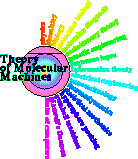

James Gleick was interviewed by NPR's All Things Considered in a piece called "Bit By Bit, 'The Information' Reveals Everything". Some excerpts from his book were discussed.
@book{Gleick2011,
author = "James Gleick",
title = "The Information, A History, A theory, A Flood",
publisher = "Pantheon",
note = "NPR story
http://www.npr.org/2011/03/08/134366651/bit-by-bit-the-information-reveals-everything",
comment = "Gleick is trapped in pitfalls: H = information and common language
use of 'information",
year = "2011"}
Several common misunderstandings about information theory were made:
"He was the first person to use the word 'bit' as a scientific unit of measuring this funny abstract thing that until this point in time scientists had not thought of as a measurable scientific quantity."In this statement Gleick claimed that Shannon originated the term 'bit'. However, in the introduction of Shannon's 1948 paper, Shannon wrote
"The choice of alogarithmic base corresponds to the choice of a unit for measuring information. If the base 2 is used the resulting units may be called binary digits, or more briefly bits, a word suggested by J. W. Tukey."For further discussion see the wikipedia entries on John Tukey and bit.
Confusing information and entropy. Gleick said that
"Information equals disorder, disorder equals entropy and a lot of physicists have been both scratching their heads and making scientific progress ever since,"Information does not equal disorder. This is a common confusion. Shannon's uncertainty corresponds to entropy. A decrease of uncertainty at the receiver (or in a molecular machine) is information gain in that device. See the page Information Is Not Entropy, Information Is Not Uncertainty! for further discussion.
Loose use of the term 'information'. Gleick fell into another pitfall by confusing the popular term information with the rigorous term Shannon used. The way to distinguish these is to ask `Is the number reported in bits?' If you don't report bits you are probably using the loose sense. See Using the popular meaning of the term 'information' for further discussion.
Further Reading. Common misunderstandings of information theory are described in Pitfalls in Information Theory and Molecular Information Theory.
Notes
![]()

Schneider Lab
origin: 2011 Mar 09
updated:
version = 1.02 of Gleick2011.html 2011 Jun 18
![]()